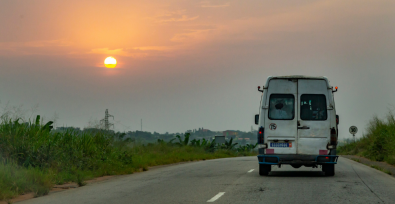Thousands of Nigerian women and girls, some as young as 13, are being trafficked to towns and cities in Ivory Coast by agents taking advantage of record unemployment in Nigeria. Recruiting agents enter rural communities or post in jobseekers’ groups on Facebook with promises of legitimate-sounding work before passing recruits to other agents who trap them into a hidden world of exploitation and debt bondage.
Sara* is one of the thousands of Nigerian women who was trafficked and is being exploited in the sex industry in Ivory Coast.
False promises and stolen lives
According to The Guardian, trafficking is a major crisis in Nigeria, with between 750,000 and 1 million people forced into begging, prostitution, domestic servitude, armed conflict, and labor exploitation.
Sara was told she would be going to the Ivorian city to sell body lotion; instead, a recruiter who paid for her travel sent Sara to brothels every night. Three months later, Sara is still waiting to earn enough to pay off the debt to the recruiter for travel, clothes, sustenance, and bribes paid to agents and authorities, so she can return to Nigeria.
It is widely known amongst authorities that Nigerian women are being targeted, however, the National Agency for the Prohibition of Trafficking in Persons (Naptip) in Nigeria declined to comment when questioned about the girls trapped and exploited in the sex industry in Ivory Coast. Additionally, the Ivorian national police did not respond to the Guardian’s request for comment either.
Trapped in a jungle from hell
Many of the women trafficked from Nigeria are hidden from authorities, living deep within the Ivorian jungle. The women and girls, aged from about 14 to 38, are forced to live in makeshift tents at several miner camps where men go to earn money.
According to a former Nigerian official who was previously stationed in Ivory Coast,
“There is an odd belief in some of the gold mining regions that sex helps you find gold, which in turn [fuels] demand for sex trafficking,” adding that, “the cocoa [production] communities also have high sex demands to keep the men satisfied.”
The Guardian spoke to at least two dozen girls and women in the jungle:
Some of them said they had been starved for refusing to work or beaten up by angry patrons. Many barely speak French and say they don’t know the country well enough to be able to escape.
Nigerian officials who have managed to repatriate girls trapped and exploited in the sex industry say they have seen children as young as 13 in the interior.
While human trafficking is criminalized in Ivory Coast, it is rarely enforced; rather, authorities often perpetuate the cycle of exploitation. It is common that security personnel who come into the jungle allegedly demand weekly bribes for each trafficked girl, which further entraps them in a vicious cycle of exploitation and debt bondage.
Sara told the Guardian, “I miss my people at home.” She was a junior in secondary school back home in Nigeria before she was deceived and trafficked into sexual exploitation.







Freedom United is interested in hearing from our community and welcomes relevant, informed comments, advice, and insights that advance the conversation around our campaigns and advocacy. We value inclusivity and respect within our community. To be approved, your comments should be civil.
Many times ignorance is not a bless. It is strange that in a highly developed planet, in terms of technology and communication, there is still so much domination in here as well as abundance of lack of equality. As a portuguese I feel my hands are tied. Neverthless, I always try to help through sharing word and information and conscious donation.